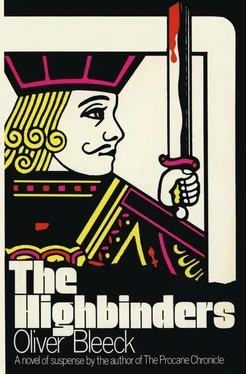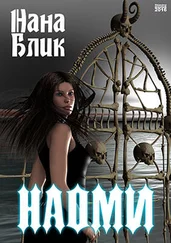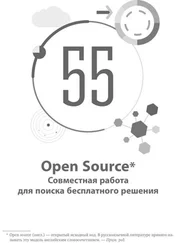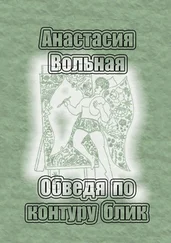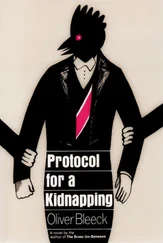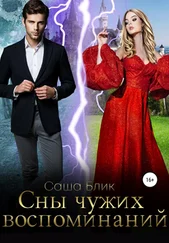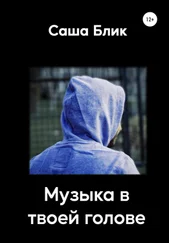“That’s right.”
“Shields?”
“Uh-huh.”
“Then you ran into Wes Cagle, didn’t you? Now there’s a right bastard.”
“How long has Wes been in town?”
Kaplan thought about it. “A couple of years at least,” he said. “How much did you lose?”
“I won a little.”
“But you didn’t come over to play poker, did you?” He picked up a bar rag and gave the old polished wood a couple of swipes that it didn’t need. “You know, I keep up, I do. I hear it around that you’re in a queer sort of business where you don’t work too hard and where nobody gets too mad at you, not even the coppers, and you do all right for yourself, you do.”
“That’s what you hear, huh?”
“That’s what I hear. So what I’m wondering is, is this. Is there any way you might want to cut me in?”
I shook my head. “Sorry, Manny. No way.”
“So what the hell did you come down here for? Where you staying, the Hilton?”
“That’s right.”
“You would. You could’ve had ’em send you up a corned beef on rye.”
“It’s not the same.”
“Sure it is,” he said. “I supply ’em with a hundred pounds a week, although don’t tell anybody I said so. You’re not down here just for old times’ sake. Our old times weren’t that long or that good.”
“I don’t know about you, Manny, but I treasure those memories.”
“Sure you do,” he said, lighting another cigarette from the butt of the one that he took from his mouth. His hands would never touch the fresh one again until he used it to light yet another one.
“You interested in making ten pounds?” I said.
He looked up at the ceiling and spread his hands wide. “God, to think I should be reduced to this.” Then he looked at me. “What do you want, a broad?”
“No, but I am looking for somebody. And it’s worth ten pounds if I can find him.”
He looked me over. “You’re not suffering. Twenty.”
“Fifteen.”
“Done. Who you looking for?”
“Tick-Tock Tamil.”
Kaplan’s face broke into a large, white smile. “Jesus, I haven’t even thought of Tick-Tock in years. I really mean in years.”
“Is he still around?”
“How the hell should I know?”
“That’s what I’m going to pay you the fifteen pounds for. To find out.”
Through his arms that rested on the bar, Kaplan looked down at the floor, as though he might find the missing Tick-Tock’s address written large at his feet. Then he looked up at me. “He was in the nick for a couple of years a while back, but I hear he got out. What do you want with Tick-Tock, a gold watch maybe that’s just been stolen from the Maharaja of Rangpur?”
“Is he still working that?”
“Was the last I heard.”
“Is he still into gold?”
If a man’s ears can really prick up, Kaplan’s did. “Be a good lad, Phil. If it’s gold you’re into, there’s got to be enough to go around.”
“I don’t know what I’m into,” I said. “That’s why I want to talk to Tick-Tock. But if there is any way I can cut you in, I will. But don’t bank on it. Anyway, there’s fifteen pounds in it just for Tick-Tock’s address.”
“How the hell should I know where he lives?”
I sighed. “Make a phone call or two and find out.”
Muttering something about snotty sonsofbitches who forget their old mates, Kaplan went through a door that must have led to his storeroom, whatever he used for an office, and the telephone. I looked at my watch, saw that it was five till three, and had the sandwich man bring me another beer before the law clamped down.
I was just finishing the beer when Kaplan came back. He had a piece of white paper in his hand. “Where’s my fifteen quid?” he said.
I took out my wallet. “With the sandwich, two beers, and tip,” he said, “that’ll come to an even twenty.”
I nodded at the stick-up and held out two ten-pound notes. He took them and handed me the slip of paper which read, “13 Start Street, W.2.”
“Where’s Start Street?” I said.
“It’s in Paddington. Where the hell else do you think Tick-Tock would live?”
I had been in no particular hurry to see Tick-Tock Tamil and I was back in my room at the Hilton, watching something about ants on BBC-2 and waiting for the phone to ring, when there was a knock on the door. It was a firm knock, even an authoritative one, and I wasn’t especially surprised when my caller turned out to be William Deskins of Bunco and Fraud, or whatever Scotland Yard calls it.
“Twice in two days,” I said. “Not quite enough to be called harassment.”
I opened the door wider and he came in, wearing the same dark brown suit. He had on a different shirt though, a white one, and his tie looked something like scrambled eggs with chopped chives sprinkled over them.
“Do you mind?” he said, looking at the television set.
“Not at all. I was learning more about ants than I really wanted to know.” I switched off the set.
“Over here,” he said and moved over to the dresser. I followed him. “You ever gamble, Mr. St. Ives?”
“Now and again.”
He took three playing cards from his pocket and dealt them face up on the dresser. The cards were the jack of hearts, the jack of spades, and the queen of hearts.
“Watch carefully,” he said. “Keep your eye on the queen.” He turned the cards face down and moved them about. His movements seemed to be neither tricky nor fast. “Now for five pounds, tell me which one’s the queen.”
“Let’s make it for fifty,” I said.
He moved the cards around some more, but this time his movements were a bit more flashy. “All right,” he said. “For fifty.”
“No bet.”
“You know the game, do you?”
“Sure. It’s a variation on the shell game, except that they make a production out of it here. There’s usually a dealer, a couple of shills, and a lookout. They sucker you in and let you win a few times. Then they take you for everything you’ve got.”
“There’s a way to win though,” he said.
“If you don’t mind a broken jaw, there is. You can bet a couple of times and then try to walk off with your winnings, but I wouldn’t advise it.”
“Nor would I,” Deskins said. He turned the cards face up and then face down. He moved them around a few times. “Where’s the queen?” he said. “For gratis.”
I tapped one of the cards. He turned it up. It was the jack of spades. “You’re good,” I said.
He turned all of the cards up, showing me the queen again, turned them face down, and started moving them around. I kept my eye on the one that I thought was the queen.
“Some of the lads had a little game going today in Shepherd Market just off Curzon. Know it?”
“I know it,” I said and tapped a card. Deskins turned it up. It wasn’t the queen. It was the jack of spades.
Deskins began moving the cards about again. “They had a nice wood box set up, a couple of shills, and as you say, a lookout. They were working the luncheon crowd, you know.”
“Uh-huh,” I said. “That one,” and tapped a card. It was the jack of hearts.
Deskins flipped the cards back over and began moving them around some more. “Who should come by but a busload of tourists.”
“Well, Shepherd Market’s pretty interesting. Sort of quaint. That one.” I tapped a card and he flipped it face up. It was the jack of hearts again.
Deskins rubbed his hands together and started moving the cards around once more. “These were Bulgarian tourists,” he said. “We don’t get too many of those.”
“That one,” I said, tapping a card. He flipped it over. It wasn’t the jack of hearts or the jack of spades. It was a photograph of me, the knave of nothing, standing in front of Karl Marx’s tomb, holding a cloth sack that clearly read “Roosevelt Hotel,” and wearing a silly smile that displayed most of my teeth.
Читать дальше
